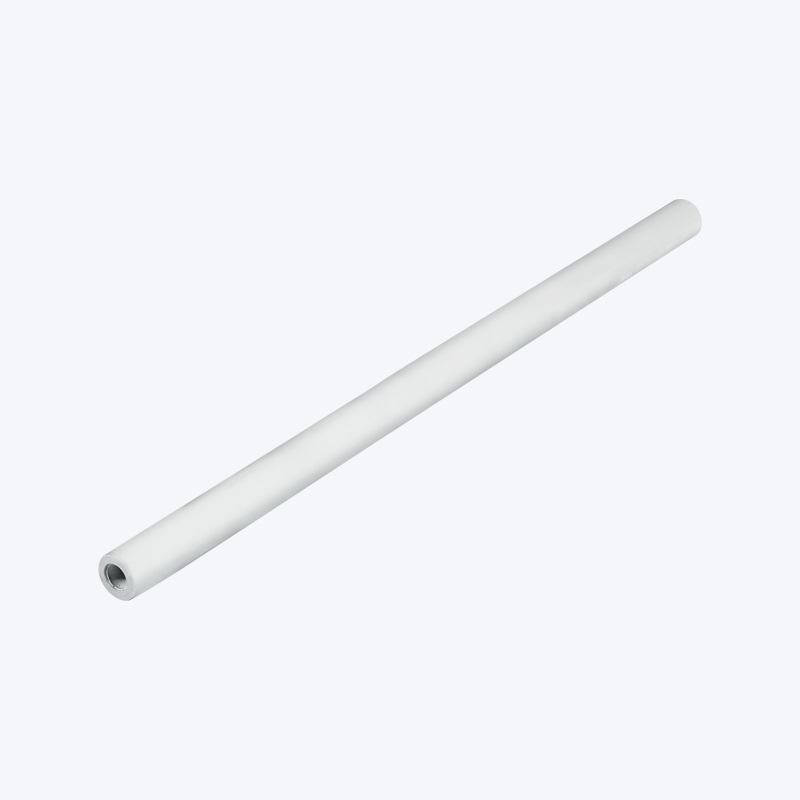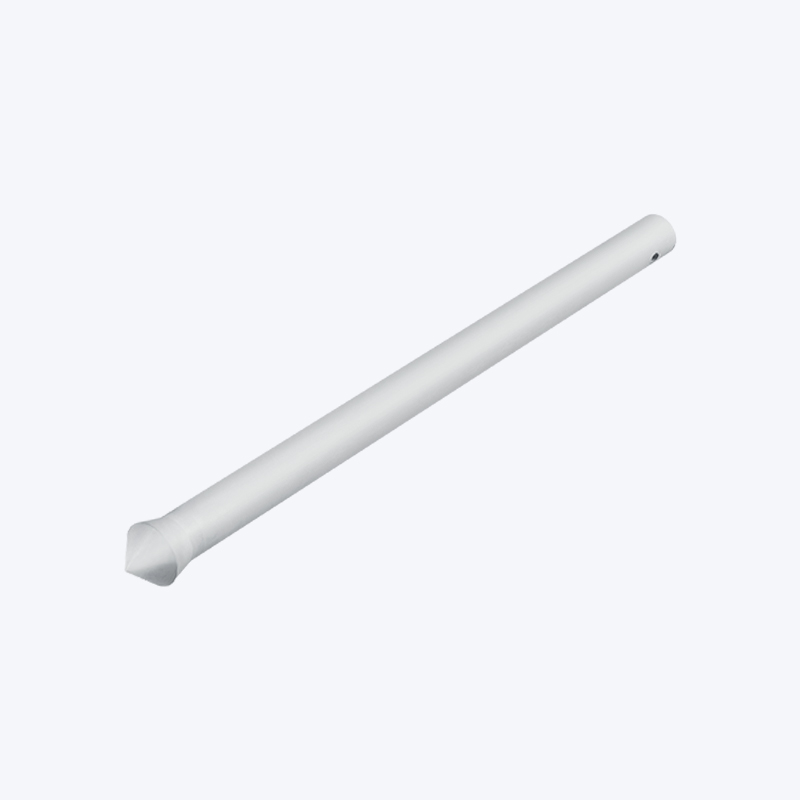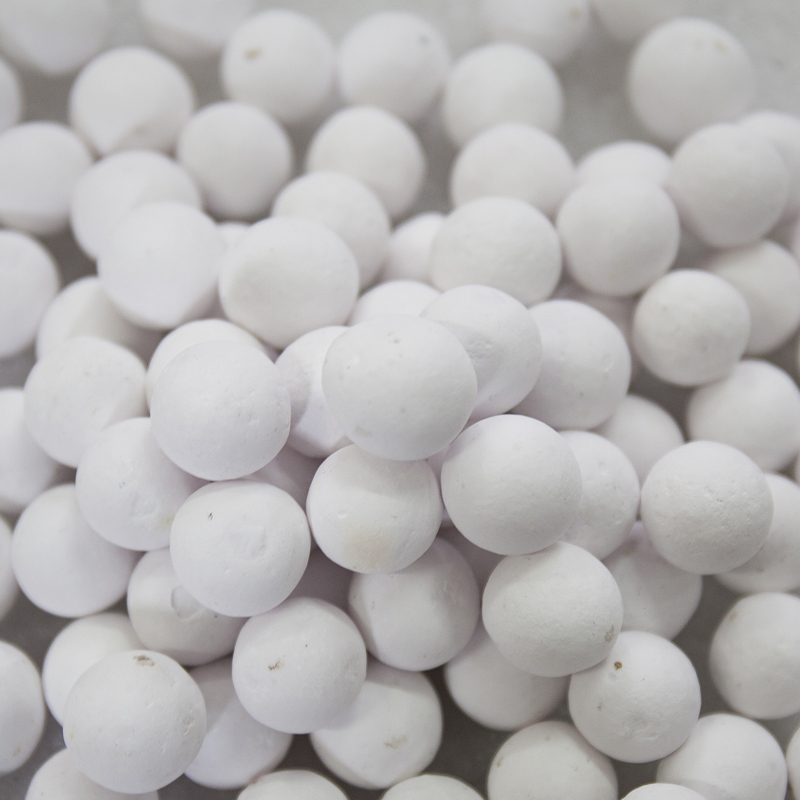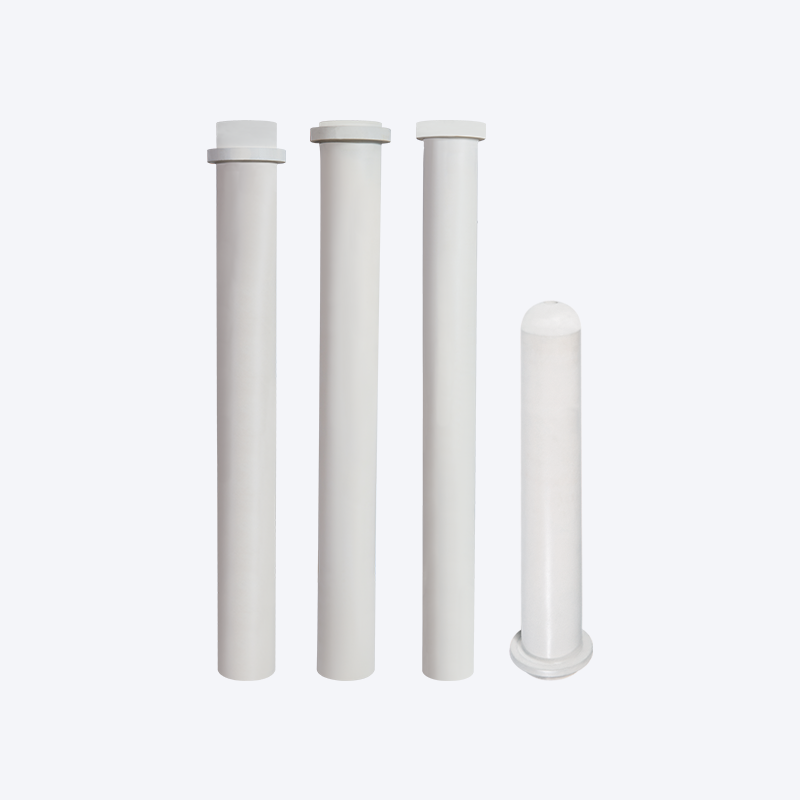Description of the nine major product performances of silicon nitride materials
Nine major product features of silicon nitride materials
1. Composition and structure
The molecular formula of silicon nitride is Si 3 N 4 , which is a covalent bond compound. Silicon nitride ceramics are polycrystalline materials, and their crystal structure belongs to the hexagonal system. Generally divided into two crystal orientations, α and β, both of which are composed of [SiN 4 ] 4 -tetrahedron. β-Si 3 N 4 has high symmetry and a small molar volume. It is a thermodynamically stable phase at relative temperature, while α-Si 3 N 4 is relatively easy to form dynamically. At high temperatures (1400℃~1800℃), the α phase will undergo a phase change to become a β type. This phase change is irreversible, so the α phase is conducive to sintering.
2. Appearance
Silicon nitride obtained from different crystal phases has different appearances. α-Si 3 N 4 is white or grayish white loose wool or needle-like, and β-"Si 3 N 4 is darker in color and appears as dense granular polyhedron or short prism. The whiskers of silicon nitride ceramics are transparent or translucent, and the appearance is gray, blue-gray to gray-black, which varies with density and relative ratio, and also presents other colors due to additives. The surface of silicon nitride ceramics has a metallic luster after polishing.
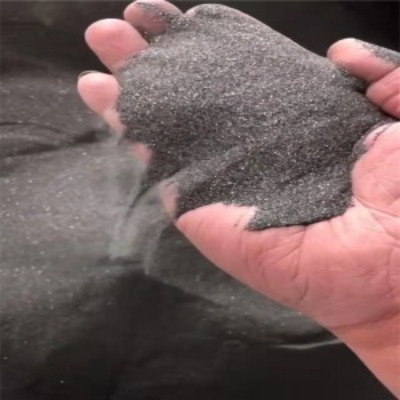
3. Density and specific gravity
The theoretical density of silicon nitride is 3100±10kg/m 3 . The actual measured true specific gravity of α-Si 3 N 4 is 3184kg/m 3 , and the true specific gravity of β-Si 3 N 4 is 3187kg/m 3 . The bulk density of silicon nitride ceramics varies greatly depending on the process, generally more than 80% of the theoretical density, ranging from 2200 to 3200kg/m 3 . The main reason for the density difference is porosity. The porosity of reaction-sintered silicon nitride is generally around 20%, and the density is 2200 to 2600kg/m 3 , while the porosity of hot-pressed silicon nitride is below 5%, and the density is 3000 to 3200kg/m 3 .Compared with other materials with similar uses, it is not only lower in density than all high-temperature alloys but also one of the low in density among high-temperature structural ceramics.
4. Electrical insulation
Silicon nitride ceramics can be used as high-temperature insulating materials, and their performance indicators mainly depend on the synthesis method and purity. The un nitrided-free silicon in the material, as well as the impurities such as alkali metals, alkaline earth metals, iron, titanium, nickel, etc. introduced during the preparation process, will deteriorate the electrical properties of silicon nitride ceramics. Generally, the specific resistance of silicon nitride ceramics in the dry medium at room temperature is 1015~1016 ohms, and the dielectric constant is 9.4~9.5. At high temperatures, silicon nitride ceramics still maintain a relatively high specific resistance value. With the improvement of process conditions, silicon nitride can enter the ranks of commonly used dielectrics.
V. Thermal properties
The thermal expansion coefficient of sintered silicon nitride is low, which is 2.53×10-6/℃, and the thermal conductivity is 18.42W/m·K. It has good thermal shock resistance, second only to quartz and microcrystalline glass. According to experimental reports, a reaction-sintered silicon nitride sample with a density of 2500kg/m 3 has been cooled from 1200℃ to 20℃, and it has not cracked after thousands of thermal cycles. Silicon nitride ceramics have good thermal stability and can be used for a long time at high temperatures. The use temperature in an oxidizing atmosphere can reach 1400 ℃, and the use temperature in a neutral or reducing atmosphere can reach 1850℃.
VI. Mechanical properties
Silicon nitride has high mechanical strength. The bending strength of general hot-pressed products is 500~700MPa, and the high strength can reach 1000~1200MPa; the bending strength after reaction sintering is 200MPa, and the high strength can reach 300~400MPa. Although the room temperature strength of reaction-sintered products is not high, its strength does not decrease at high temperatures of 1200~1350℃. Silicon nitride has low high-temperature creep. For example, the load of reaction-sintered silicon nitride at 1200 ℃ is 24MPa, and the deformation is 0.5% after 1000h.
VII. Friction coefficient and self-lubricity
The friction coefficient of silicon nitride ceramics is small, and the increase in friction coefficient is also small under high temperature and high-speed conditions, which can ensure the normal operation of the mechanism. This is a prominent advantage of silicon nitride ceramics. When silicon nitride ceramics begin to wear, the sliding friction coefficient reaches 1.0 to 1.5. After precision grinding, the friction coefficient is greatly reduced and remains below 0.5. Therefore, silicon nitride ceramics are considered to have self-lubricating properties. Unlike graphite, boron nitride, and talc, the main reason for this self-lubrication lies in the layered structure of the material structure. Under pressure, the friction surface is slightly decomposed to form a thin air film, which reduces the sliding resistance between the friction surfaces and increases the smoothness of the friction surface. In this way, the greater the friction, the smaller the resistance, and the wear is particularly small. After continuous friction, the material tends to gradually increase its friction coefficient due to surface wear or softening due to temperature increase.
VIII. Machinability
Silicon nitride ceramics can be machined to the desired shape, precision, and surface finish.
IX. Chemical stability
Silicon nitride has good chemical properties and can resist corrosion from all inorganic acids except hydrofluoric acid and sodium hydroxide solution less than 25%. Its oxidation resistance temperature can reach 1400℃, and its use temperature in a reducing atmosphere can reach 1870℃. It does not get wet on metals (especially aluminum liquid) and is even more so on non-metals.
From the above physical and chemical properties of silicon nitride ceramics, it can be seen that the good performance of silicon nitride ceramics has special application value for the working environment of high temperature, high speed, and strong corrosive media often encountered in modern technology. Its outstanding advantages are:
It has the following points:
(1) High mechanical strength and hardness close to corundum. The room temperature bending strength of hot-pressed silicon nitride can be as high as 780-980MPa, some are even higher than alloy steel, and the strength can be maintained up to 1200℃ without degradation.
(2) Mechanical self-lubrication, low surface friction coefficient, wear resistance, high elastic modulus, and high-temperature resistance.
(3) Low thermal expansion coefficient, high thermal conductivity, and good thermal shock resistance.
(4) Low density and low specific gravity.
(5) Corrosion resistance and oxidation resistance.
(6) Good electrical insulation.
Contact Us for Quotes and Prices!
Just let us know what you want, and we will get in touch with you as soon as possible!

 English
English 简体中文
简体中文



